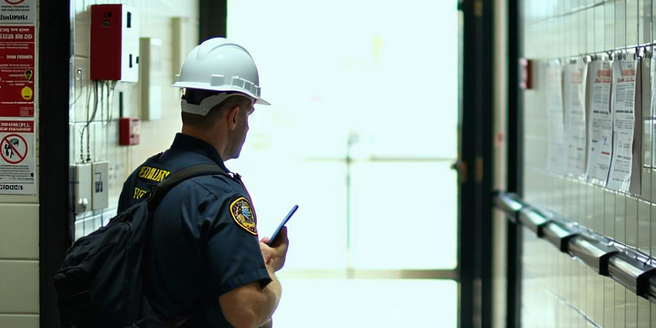The Importance Of Regular Property Inspections

Understanding the Basics: What is a Property Inspection?
A property inspection is a thorough examination of a property’s condition, usually performed by a professional inspector. The primary goal is to identify any potential issues or maintenance needs. These inspections are typically conducted for residential or commercial properties and are crucial before buying, selling, or leasing a property. Inspectors assess elements like structural integrity, safety features, plumbing, electrical systems, and more. This detailed assessment can potentially save buyers from unexpected future expenses. A comprehensive report is provided to the property owner or potential buyer, highlighting areas that may require repairs or upgrades. Understanding the basics of property inspections is essential for anyone involved in real estate transactions, ensuring informed decisions about property investments.
Key Benefits of Regular Property Inspections
Regular property inspections offer numerous benefits, including ensuring safety, maintaining property value, and identifying potential issues before they become costly repairs. By conducting inspections regularly, property owners can address concerns such as water damage, pest infestations, and electrical problems early on. This proactive approach is an investment in the future condition of the property. Not only does it prevent expensive repairs, but it also enhances the property’s longevity and appeal. Moreover, regular inspections foster a secure living environment by ensuring that all safety features, such as smoke detectors and fire alarms, are in working order. Overall, routine inspections are a crucial practice for preserving property value and ensuring the safety and satisfaction of occupants.
Common Issues Identified During Inspections
Property inspections often reveal a range of common issues that need attention. Among these are plumbing leaks, which can lead to water damage if not addressed promptly. Electrical problems, such as outdated wiring or faulty outlets, are also frequently identified, posing safety risks if ignored. Inspectors may uncover signs of pest infestations, like termites or rodents, which can cause significant damage to the property’s structure. Potential buyers are often deterred by such findings, impacting the property’s marketability. Roof leaks or damage are other common findings that, if left untreated, can result in costly repairs. Addressing these issues early, as identified during inspections, is crucial in maintaining the property’s condition and preventing escalation into more severe problems.
How to Prepare for a Successful Property Inspection
Preparation is key to ensuring a smooth property inspection. Start by scheduling the inspection at a convenient time, allowing ample access to all areas. Make sure to inform any tenants about the upcoming inspection to avoid any surprises. Ensure that utilities, such as electricity and water, are on to facilitate testing. Clear clutter from inspection areas, providing easy access to crawl spaces, basements, and attics. Repair any minor issues beforehand, like leaky faucets or broken light switches, to present a well-maintained property. Additionally, gather all relevant documents, such as past repair records or warranties, to address any questions the inspector might have. Being proactive and organized helps ensure a successful inspection, yielding accurate and comprehensive results.
The Role of Technology in Modern Property Inspections
Technology plays a pivotal role in enhancing modern property inspections, offering tools that improve accuracy and efficiency. Drones, for instance, allow inspectors to assess roofs and hard-to-reach areas without the need for ladders. Thermal imaging cameras detect insulation issues or moisture leaks invisible to the naked eye. In addition, virtual reality is beginning to be used to help inspectors visualize complex systems and structures. Mobile apps streamline report generation, enabling inspectors to quickly document findings and share them with clients. These technological advancements enhance the thoroughness and reliability of inspections, providing property owners with detailed insight into their property’s condition. Embracing technology in inspections ensures a more comprehensive evaluation, ultimately benefiting property stakeholders.